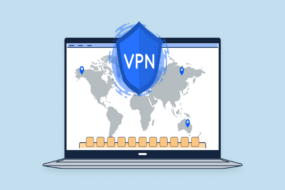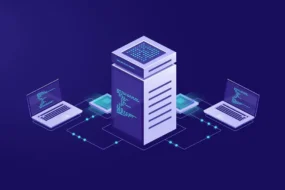Kids who are born in the world of technology can not be kept away from it for long. In today’s world where almost everything is taken over by technology, media, and the Internet, keeping your kids from using or being a part of this world of technology is near to impossible. Instead of keeping technology at bay, you need to educate your children on how to tread the world of the internet in a safe and secure way.
Since the pandemic, the exposure to the internet for children has increased a lot. As schools introduced online learning, children’s access to computers and technology became a norm. While it is a great way to keep their learning process running and provide them equal opportunities to get quality education, their safety online has become a risk greater than ever before.
If you also have kids who have access to the Internet for whatever reason, and you’re worried about their safety online, worry not and read on. Because we have come up with tips on Internet Safety for kids.
Use a Secure Internet Connection
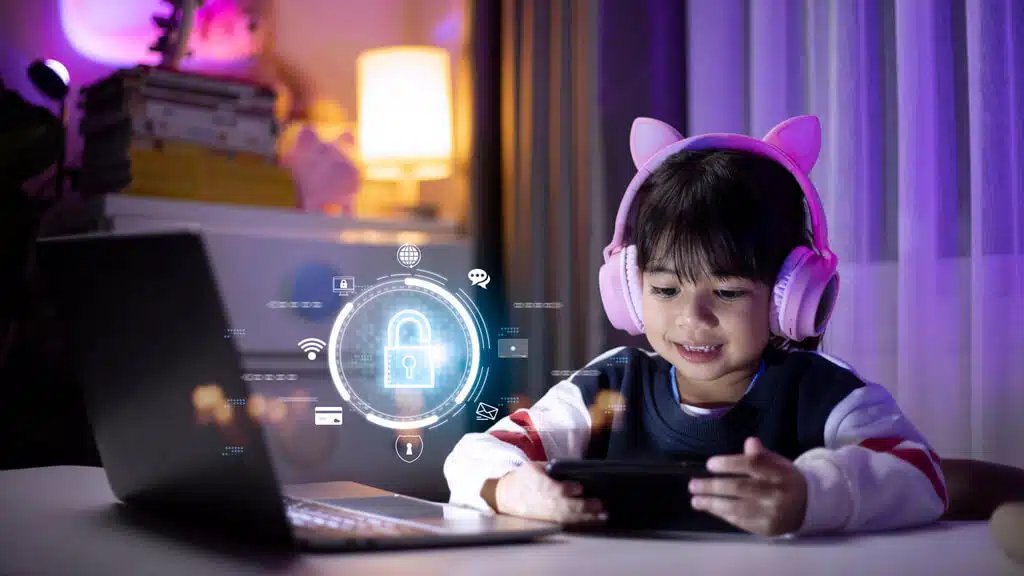
First things first, having a secure internet connection is the first step to ensuring safety online. If you have a secure internet connection, you will automatically be secure from cyber criminals trying to steal your data from your systems.
Cybercriminals invade your system in an attempt to hack it and get access to your personal files, your passwords, or any data of yours. This may be used to harm your privacy and security. It gets more dangerous if your children are using an unsecured internet connection as they can easily click on a spam link and get your systems hacked or in danger.
Make sure that the internet connection that you choose offers good security and safeguards you against any cyber threats. We recommend choosing a secure connection like AT&T fiber Internet which blocks any malicious threats reaching your system.
Keep Your Cybersecurity Software Updated
Having robust anti-virus software will ensure the safety of your systems. There are a number of cyber threats like malware, spyware, hackers, etc, that can be dealt with thanks to a variety of dedicated anti-viruses. Anti-virus scan and detect cyber threats and remove them from your computer even before they can harm you.
When children are using a device, you must always make sure that it has good anti-virus software installed and is also regularly updated to maximize its potential and security. Children do not care about clicking only the links they need, they may scroll and stream around clicking as many links as come their way. To make sure that their online surfing will not cause any harm, having a good anti-virus is essential.
Educate Your Kids About Cyberbullying
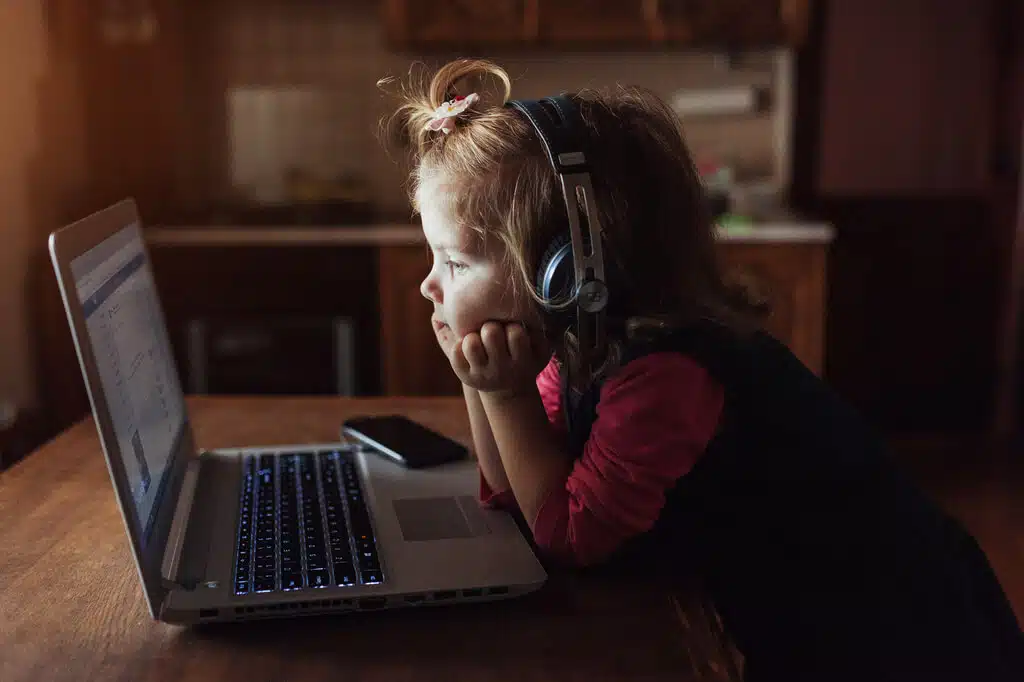
Another major factor that will affect the well-being of your children online is cyberbullying. Just as you would protect and chaperone your children in the real world, you cannot be there with them in the digital one. Especially when children get access to social networking websites. There may be people who will try to befriend them and get access to information from them, or simply harass them online.
To avoid any such misfortune, you need to educate your children and set up no-go zones online. List down only the websites that are secure for their use and teach them not to mingle with strangers online.
Use Parental Control Apps
If your kids use a tablet or phone for accessing the internet, you can download a parental control app that gives you complete control of your child’s activities online. You can block unwanted websites, monitor your child’s activity, set up a time range for them to use their device in a day, and make sure that whatever actions they take are safe and secure.
There are a number of parental control apps including Web filters, word filters, content blockers, time limits, and activity monitoring apps.
Teach Your Children About Privacy Settings
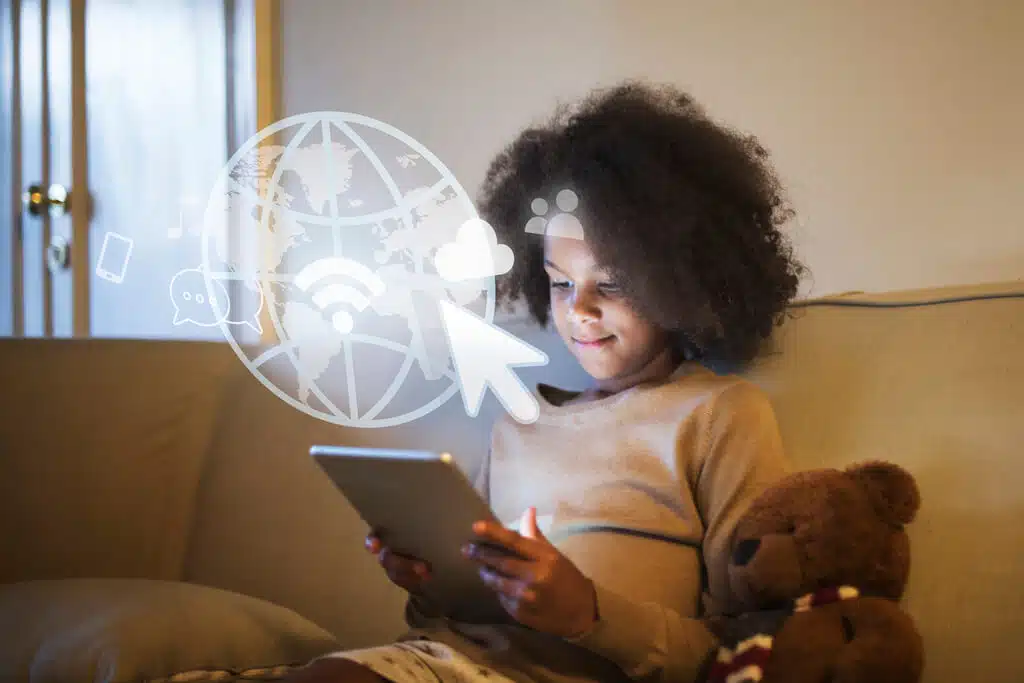
If you have early teens who you do not need to use parental controls on, you should teach them the importance of privacy online. Whatever social media platforms they are using, they need to keep their private information hidden from public view.
Teach them not to add strangers to their networks or engage with any strangers in online spaces. Even if they have to, they should not talk to them privately, sharing your personal information.
Similarly, sharing pictures on social media should also be limited to their very close circle. So make sure you have this conversation with your child before they make their social media accounts.
Ending Note
Prioritizing Internet safety for kids is crucial; their well-being in online spaces must be your foremost concern. The digital world is endless and a lot of people pose to be someone they are not. This can be a big threat to the safety of your children online. You need to make sure that both, their devices and themselves are in a safe and secure environment as they delve into the world of technology and the Internet.






